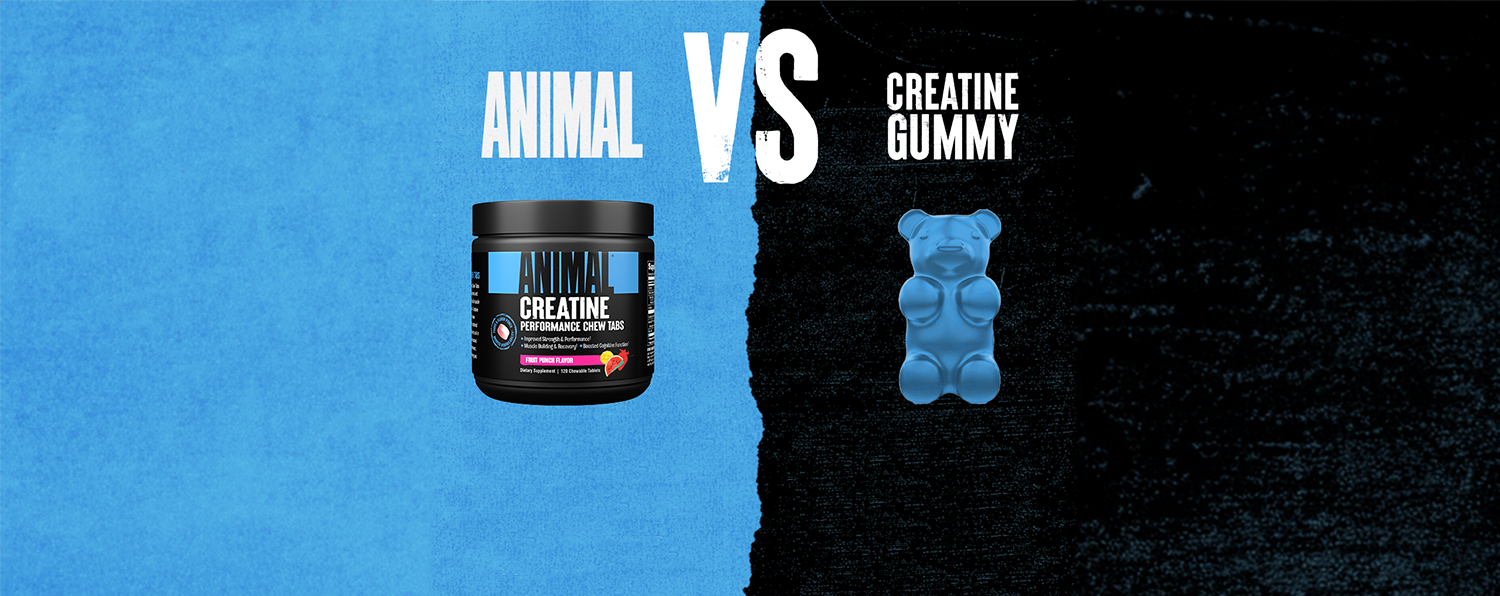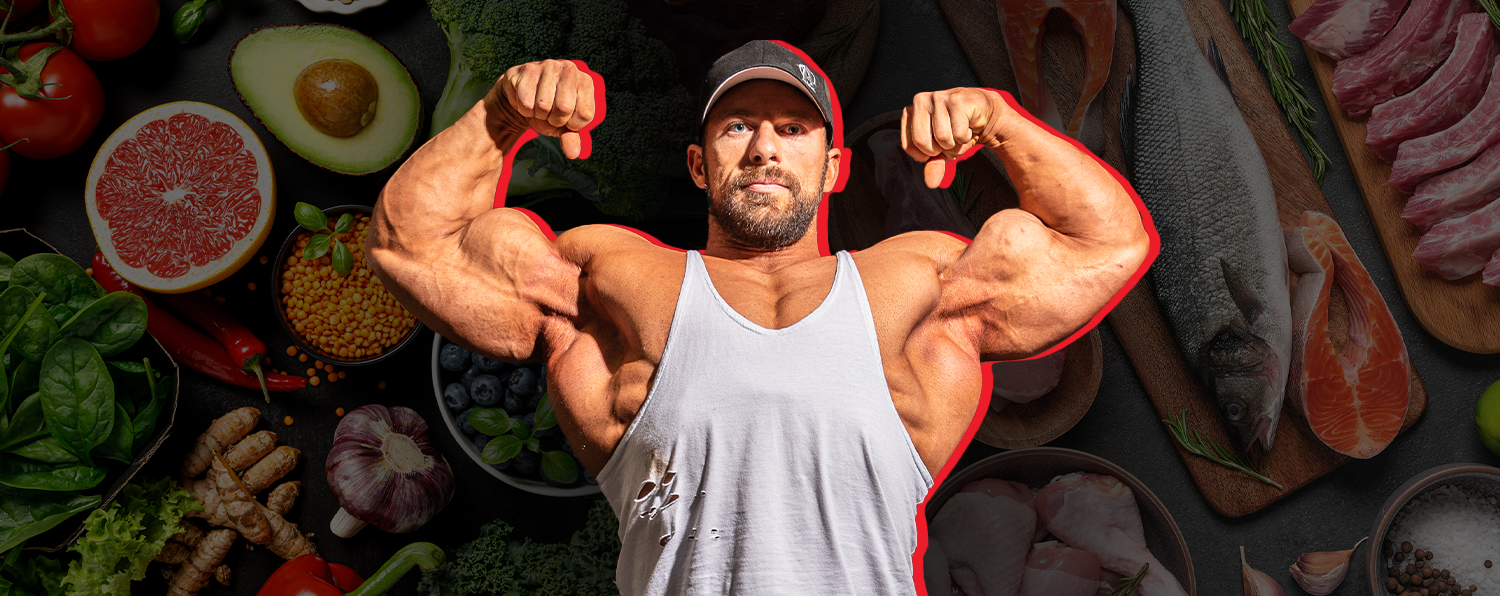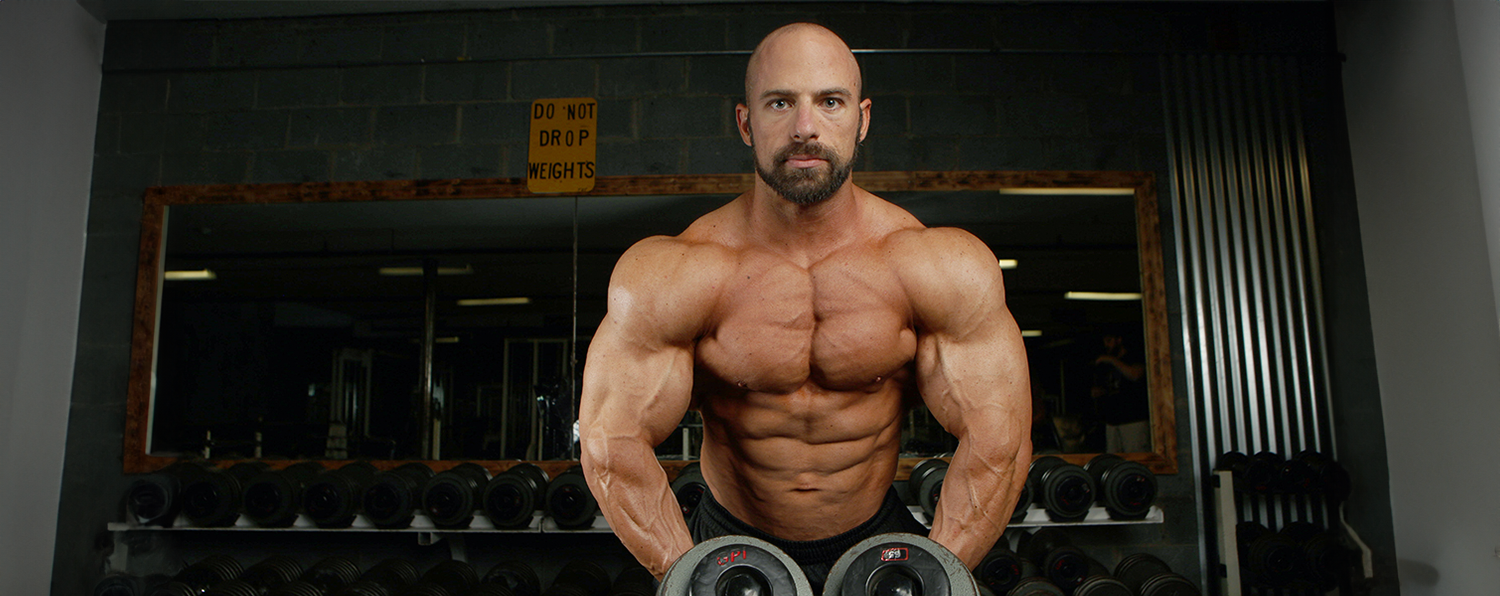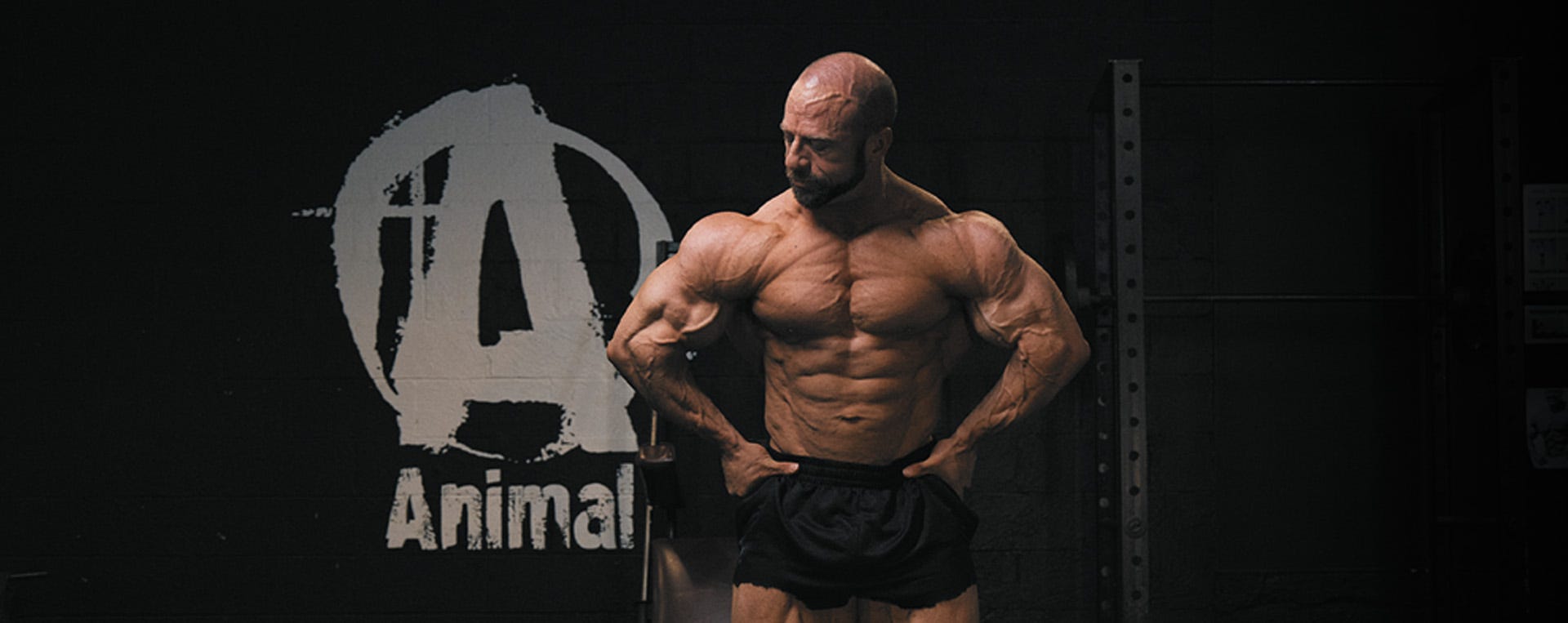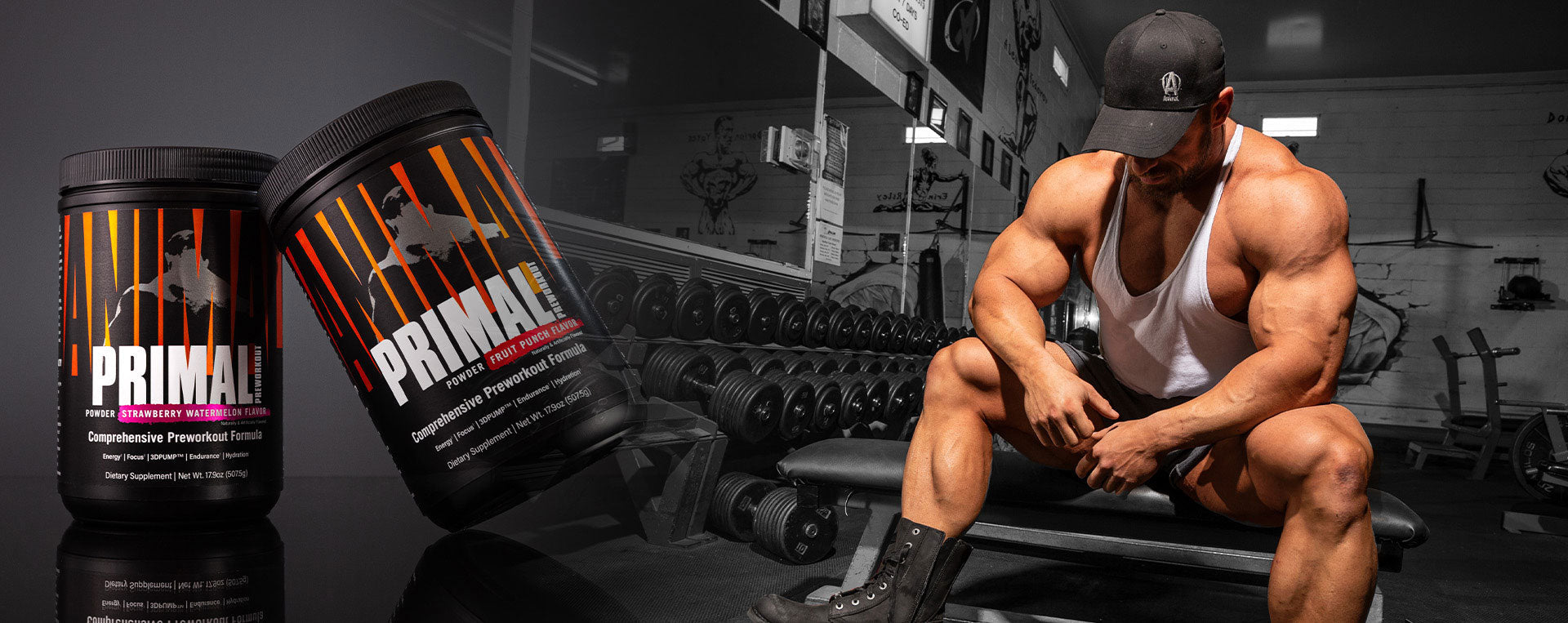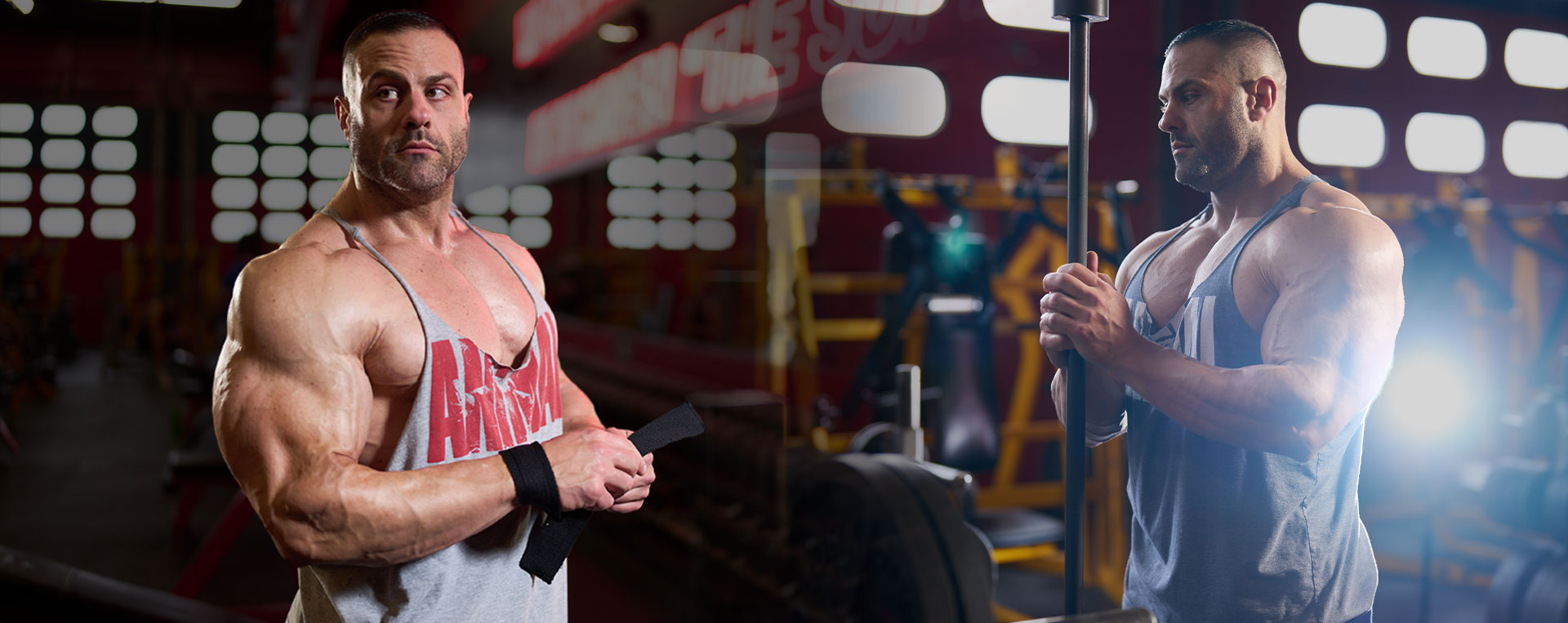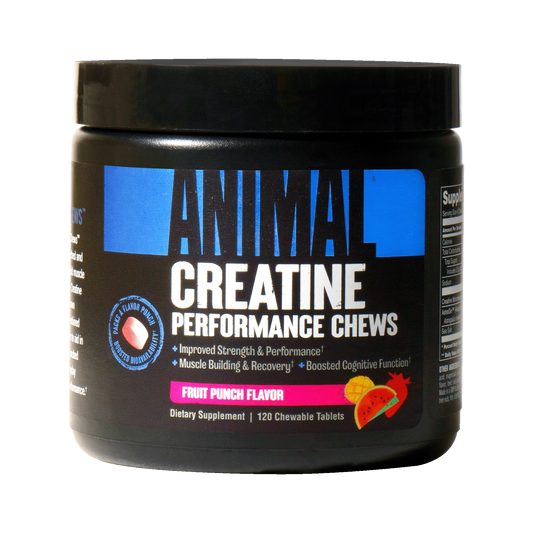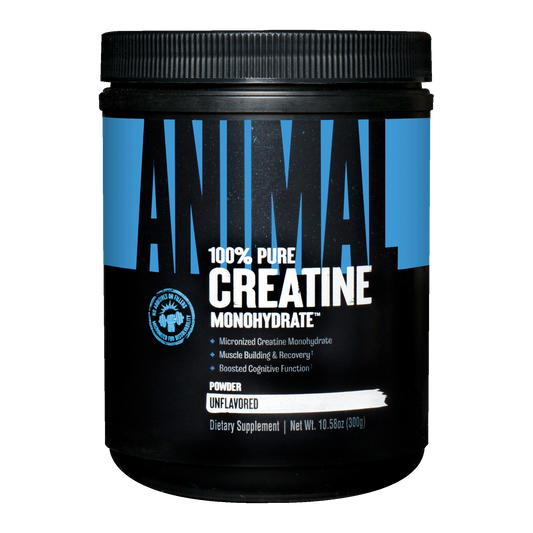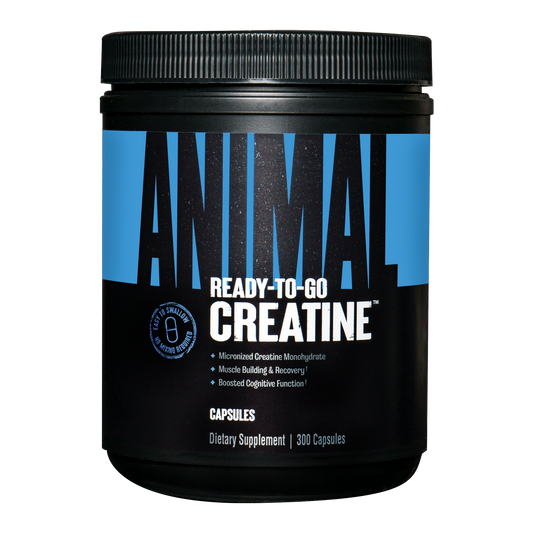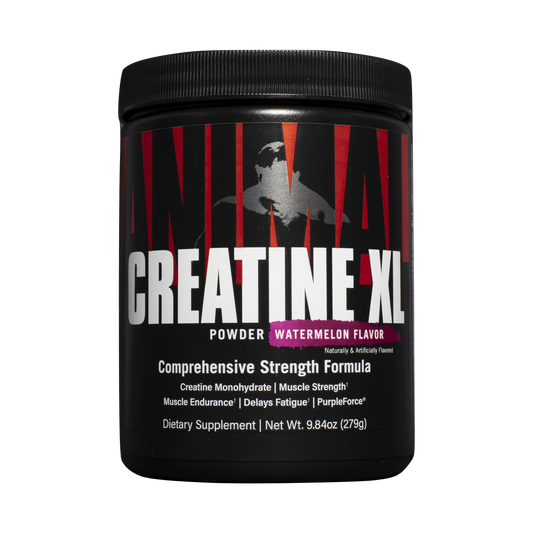Nutrition is an essential part of reaching your bodybuilding physique goals, but dieting can be a challenging thing to master. Everyone loves working up a good pump, seeing muscles expand or waistlines shrink, and feeling stronger and more capable than ever.
But the hard fact is, diet is one of the most crucial elements to breaking through plateaus and reaching new peaks in your training. It’s also one of the most nuanced factors in bodybuilding gains, meaning the items you put in your food cart are among the most important weapons in your weight training arsenal.
There are a million resources out there for creating a healthy bodybuilding grocery list for beginners. But if you’re looking for pro-level gains, I invite you to join me as I take you through my local grocery store and show you my go-to nutrition staples when dieting during contest prep. In this comprehensive article, I will show you how to navigate the aisles and fill your cart with the best foods for weight loss and muscle gain. We’ll be shopping for real ingredients that lead to real gains.
My goal here is to answer some important and common questions about food and its relationship to muscle gain and fat loss. I’ll be answering some big ones that every bodybuilder at every level should know, such as:
- What is a bodybuilder’s diet while cutting?
- What are the staple foods in a bodybuilder’s diet?
- What are the best possible foods you can eat for bodybuilding?
Let’s dive in.
Veggies and Fruit: The Foundation of a Nutrient-Rich Diet
Before we get into the macronutrients, let's nail our micronutrients with fruit and veggies. During a fat loss phase, food volume is going down and that means so will our micronutrients and fiber intake. Getting the right amount of fruits and veggies can help reverse that nutrient tailspin, while hitting goals for cutting fat. That’s why I always have vegetables and fruit on my grocery list for cutting fat and unneeded weight.
You’ve heard the advice about “eating the rainbow.” That’s a solid, if simple, guideline which will naturally pull you toward some of the healthiest (and tastiest) fruit and veggie options.
These colorful choices are packed with vitamins, minerals, and antioxidants that support immune function, aid in recovery, promote the metabolism of your macros, and will help you manage hunger during competition prep – or any period of intense dieting.
So, what is a bodybuilder’s diet while cutting fat? I personally like to pick fresh produce for my nightly salad with ingredients like:
- Lettuce – For Vitamins A, C, and K, plus key micronutrients like beta carotene and folate. [1]
- Tomatoes – Micronutrient powerhouses, tomatoes are packed with crucial vitamins, amino acids, antioxidants, and a host of other essential nutrients. [2]
- Onions – A great source of micronutrients and fiber, which plays a big role in gut health. [3]
When I opt for frozen ingredients, such as for protein smoothies or stir fries, I buy large packs of spinach, asparagus, mixed veggie blends, berries, and peaches. These are among the best foods for weight loss and muscle gain from a micronutrient stand point.
Protein Choices: Building Blocks for Muscle Growth
You can’t make a healthy bodybuilding grocery list without a variety of protein sources.
Protein is a crucial micronutrient for bodybuilders, as it provides the building blocks necessary for muscle repair and growth. [4] Heading into the meat market I choose a split chicken breast as it's lean and cooks faster, being cut in half. The funny thing is that it is often cheaper this way as well.
I also grab one pack of 96% lean beef to eat twice per week on my off days. This lets me get some extra fat added in advantageously. Regulation is key here: remember, if you’re making a grocery list for cutting fat, you want to be smart about the fat type and amount you are ingesting.
My last protein option to go into my cart is whole eggs and egg whites. Eggs are a breakfast staple, loaded with health protein to the tune of about 6g per egg. [5] Adding egg whites to my cutting grocery list helps keep calories low and protein high when I’m cutting. [6]
Calculating Your Protein Needs
Scientific recommendations for advanced bodybuilders suggest getting 1.6 to 2.2 grams of protein per kilogram of bodyweight per day. [7]
Some quick math tells us that if you’re 200 pounds (90kg) you’ll need at least 198g of protein each day, presuming your intake needs are 2.2 grams per kilo.
Carb and Fat Choices: Fueling Your Workouts and Supporting Hormonal Balance
Carbohydrates are your body's primary source of energy, making them essential for fueling resistance training. Upholding gym performance is your #1 strategy to retain that offseason muscle gain, making carbohydrates an essential item. [8] We already have some fruit and veggies in our cart, now we just need to pick out some complex carbs.
For some fibrous carb options, I like to get oats, fiber tortillas, and pumpkin, as these also aid in managing hunger and are excellent base ingredients for high-fuel meals. I can’t go without some white jasmine rice—another great base that’s easy for our bodies to absorb. It’s already one of the most healthy bodybuilding grocery list items, but you should consider opting for the non-iron-fortified variety, since it’s already very easy to get an excess of iron with the amount of rice products we consume as bodybuilders.
Fats can also supply energy to the body and support cell growth. During fat loss phases I won’t have a lot of added fats into the diet as these will mainly come from protein sources like beef and eggs. But I still put nut butters on my cutting grocery list, mainly peanut butter and almond butter. With some meals having some olive oil added as well.
Calculating Your Carb Intake
Carbohydrates are key to refueling your body. But as with all nutrients, the amount you consume is key. It also depends on your needs and goals.
Most bodybuilders aim for 3 to 7.5 grams per kilo of bodyweight per day. Let’s say you’re somewhere in the middle, aiming for 5g per kilo per day. Your carbohydrate needs will be 450g daily. [9]
Calculating Your Fat Intake
Fats should account for 20-35% of your daily calories, according to the American College of Sports Medicine. [10] This comes out to about 0.5 to 1.5 grams per kilo of bodyweight each day. [11]
Mathing that out, our 200-pound bodybuilder will be getting maximum of 135g of fat daily.
Macronutrient Intake By Meal
That’s great, but in order to help us make a healthy bodybuilding grocery list, we need to know how that’s going to break down meal by meal. Beyond the right amount of macros, it’s also advised to spread that out over up to six meals per day. This can include primary meals and in-between meals—just so long as you’re not consuming all those calories in just two or three main meals each day.
A simple way to calculate your macronutrient requirements per meal is an even division. Let’s calculate this based on the following requirements:
Carbs: 450g/day
Protein: 198g/day
Fat: 135g/day
Our total macro requirements for a six-meal day will look like this:
Carbs: 450g / 6 = 75g of carbs per meal
Protein: 198g / 6 = 33g of protein per meal
Fat: 135g / 6 = 22.5g of protein per meal
Of course, some meals will be higher in certain macros than others. It’s okay if you get different amounts at different meals—that’s natural. As long as you’re staying within your personal range, you’ll be keeping your macros on track with your training.
Diet Hack Choices: Maximizing Convenience Without Sacrificing Nutrition
For bodybuilders seeking convenience without compromising nutritional goals, diet hack choices are invaluable. Opting for diet soda provides the satisfaction of a fizzy beverage without the added sugar or calories, supporting fat loss efforts.
Similarly, condiments, seasonings, and flavorings like mustard, hot sauce, and stevia offer flavor enhancement to meals without excess calories, making them ideal for enhancing taste while adhering to strict dietary guidelines.
These can be okay during a diet, but don’t go overboard as some are only low calorie but can add up and also cause some GI bloat and gas.
Bonus Tips to Save Money: Maximizing Your Grocery Budget
- Plan your meals and make the most healthy bodybuilding grocery list. By planning your meals ahead of time and creating a detailed shopping list, you'll avoid impulse purchases and reduce food waste.
- Buy in bulk. Purchase staple items like rice, oats, meat, and protein powder in bulk to take advantage of cost savings. Look for sales and promotions to stock up on essentials. Get a deep freezer to store for a longer term.
- Choose seasonal produce: Seasonal fruits and vegetables are often more affordable and taste fresher. Shop for produce that's in season to save money while enjoying the best flavors. Grab frozen ingredients to prevent spoiling and avoid food waste with items you don’t use on a regular basis.
- Consider store brands and generic options: Compare prices between name brands and store brands or generic options. In many cases, store brands offer similar quality at a lower price point and you might get some extra savings if the store has a benefit or discount card as well.
Now Time to Cook!
You should now have a solid understanding of how to create and stick to a healthy bodybuilding grocery list. Grocery shopping for bodybuilding success is all about making informed choices and prioritizing nutrient-dense foods that support your physique goals. By filling your cart with a variety of veggies, lean proteins, complex carbs, and healthy fats, you'll retain hard earned muscle and shed body fat. With a little planning and smart shopping strategies, you can maximize your grocery budget and set yourself up for success in and out of the gym.
Now it’s time for the fun part. If you haven’t already, try to find a way to make cooking enjoyable—even if you’re only cooking for yourself. Finding excitement in meal prep may help you get more interested in nutritional sciences, which is incredibly important for dedicated athletes; and it’ll make meal prep feel like time well spent instead of just another chore.
Bon appetit!


